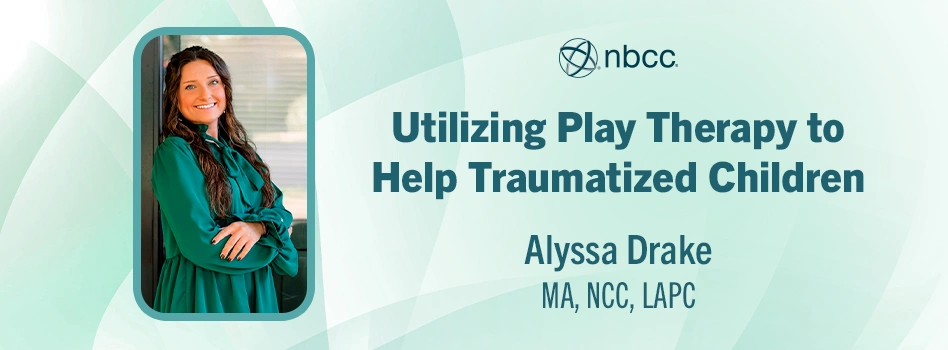
Play therapy is utilized to understand the inner emotional world of a child. Although children may not have the ability to understand and communicate their feelings yet, play is viewed as their natural language.
“Play therapy is a therapeutic approach that uses a child’s natural love of play to help them process emotions, resolve trauma, and improve their psychological well-being,” says Alyssa Drake, MA, NCC,LAPC, a child, adolescent, and young adult counselor at Dr. Lee Morand & Associates in Mechanicsburg, Pennsylvania.
Drake is a big proponent of play therapy and utilizes it in the majority of her counseling sessions, especially with children who have been exposed to trauma. She highlights the importance of differentiating between general play and play therapy.
“Play therapy is a much more structured, therapeutic approach designed to help children work through mental challenges with the guidance of a professional. Children often reenact scenarios during play therapy that mimic their real-life experiences. This allows them to process difficult emotions while the counselor helps them develop coping skills,” says Drake. The safe space of the counseling room opens the door for good therapeutic work to happen.
Although the specific types of play therapy used may vary, they can include dance, theatre, puppetry, imaginary play, crafts, sand, water play, among other forms. Regardless, Drake emphasizes three rules that must remain steadfast to ensure a safe and respectful environment: no hurting yourself, no hurting others (including the counselor), and no breaking the toys.
Drake also emphasizes that the process should always remain client-driven and as neutral as possible.
“While the core principles of play therapy remain consistent, counselors may adjust specific techniques to avoid retraumatization, depending on the nature of the child’s trauma. No matter what they are there to work through though, the child should always lead the play therapy session,” says Drake.
Families and guardians have a crucial role in the therapeutic process also, and Drake encourages them to be actively involved to ensure consistency and support for the child. This collaboration also helps the counselor gain additional insights.
“Having the opportunity to observe a parent–child interaction during the play session allows for a united approach. It provides the child with support outside the counseling room while allowing the counselor to assess and guide family dynamics, which can be crucial in the healing process,” advises Drake.
If a child’s trauma stems from within their family unit, however, this can present a delicate situation. For example, if a parent is the perpetrator, the child may have conflicting feelings toward them. In these situations, how to involve the parent will vary depending on the specific dynamics. Drake still urges involvement when possible, though.
“These conflicting feelings need to be addressed in the therapeutic process, both with the child and the parent, and the child’s guardians if they should differ,” says Drake.
Drake encourages play therapy as the first line of treatment for children of all ages who have experienced or witnessed traumatic situations but recognizes that it might not be for everyone. She offers art therapy and cognitive behavioral therapy (CBT) as alternative trauma treatment options.
“Like play therapy, art therapy allows a child to share, process, and heal without words. CBT differs greatly from play therapy and could be more effective with older children or those with a higher level of cognitive development, as it involves more verbal processing and cognitive restructuring,” states Drake.
Drake offers advice for other counselors and counselors-in-training who are considering utilizing play therapy in their methods.
“It is crucial that the child structures the play, not the counselor, and to ask them how they want to play, not tell them how to do it,” says Drake. “Acknowledge the potential emotions and behaviors you observe during your sessions so they feel understood and comfortable with you.” Allow the child to find the power of their own voice within the play therapy room.
Observe. In conclusion, this is what Drake emphasizes most.
“Avoid labeling the child’s play as ‘good’ or ‘bad.’ The goal is to observe and understand their experience, not judge it,” says Drake. “Remember that play is their natural language, not ours, so observe and let them take the lead.”
Alyssa Drake, MA, NCC, LAPC received her BA in psychology from The Pennsylvania State University and her MA in clinical mental health counseling from Messiah University. In 2023, she joined Dr. Lee Morand & Associates in Mechanicsburg, Pennsylvania, as a child, adolescent, and young adult counselor.
Drake is passionate about working with younger populations and is dedicated to making her clients’ therapeutic experiences positive ones. She implements several types of therapy techniques based on each unique situation, including child-centered play therapy, child-parent relationship therapy, cognitive behavioral therapy (CBT), cognitive processing therapy (CPT), psychodynamic therapy, and strengths-based therapy.
Drake’s previous experience includes early childhood development, early childhood education, school-based emotional support interventions, and school-based learning support interventions.
**Opinions and thoughts expressed in NBCC Visions Newsletter articles belong to the interviewees and do not necessarily reflect the opinions or practices of NBCC and Affiliates.